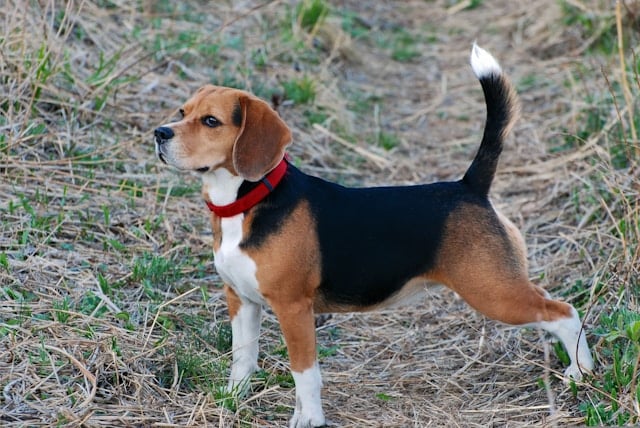In a world grappling with widespread obesity, our canine friends are not immune to this health challenge. The struggle of weight loss is as real for our dogs as it is for us. Beagles, in particular, are prone to gaining extra pounds due to their inherent love for food and tendency to overeat. This article provides a comprehensive guide on creating a recovery plan for an overweight beagle, ensuring the health and happiness of your beloved pet.
Understanding Canine Obesity
Before diving into the recovery plan, it’s crucial to understand canine obesity and how it impacts the overall health of your beagle. Obesity in dogs is not merely about being chubby or cute; it’s a serious health condition that could lead to multiple diseases.
Dans le meme genre : What’s the Most Effective Way to Desensitize a Dog to Fireworks?
Canine obesity is a condition where the dog’s body has excessive fat, leading to a body weight that is 15% to 20% above the ideal weight for the breed. Obesity in dogs can lead to various health issues, including diabetes, heart disease, and osteoarthritis. Overweight dogs also tend to have a lower life expectancy than their fit counterparts. In beagles, obesity can be alarming due to their small size, making the additional weight more burdensome.
Assessing Your Beagle’s Weight
To determine if your beagle is overweight, start by evaluating their body condition. A healthy beagle should have a visible waistline, and ribs should be palpable but not visible. If you can’t feel your beagle’s ribs or see a waistline, it may be time to consult your vet about a weight loss plan.
Avez-vous vu cela : What are the Optimal Light Conditions for a Russian Tortoise Habitat?
Your vet will conduct a thorough physical examination and may recommend additional tests to rule out any underlying diseases causing weight gain. This comprehensive health check will help you understand the weight loss requirements and establish a baseline for measuring progress in your beagle’s recovery plan.
How to Help Your Beagle Lose Weight
Helping your beagle lose weight requires a balanced approach of diet modification and regular exercise. It is not about starving your pet or pushing it to extreme physical activities; it’s about creating a healthy lifestyle.
Dietary Changes
The primary step towards weight loss in dogs involves dietary changes. Similar to humans, weight control in dogs comes down to calories in versus calories out. Simply put, to lose weight, your beagle needs to consume fewer calories than it burns.
Begin with a reassessment of your beagle’s diet. Replace high-calorie treats with healthier alternatives, like carrots or green beans. Despite being a small change, it can significantly impact your dog’s calorie intake.
Next, consider the dog food you provide. Commercial dog food often contains fillers and sugars that can contribute to weight gain. Instead, look for high-quality, protein-rich dog food. Protein will help your beagle feel satisfied longer, reducing the tendency to overeat.
Finally, pay attention to portion sizes. Overfeeding is a common cause of obesity in dogs. Your vet can help determine the right portion size for your beagle’s weight, age, and activity level.
Regular Exercise
Along with a balanced diet, regular exercise is vital for your beagle’s weight loss. Beagles are an active and energetic breed that enjoy physical activity. Create a consistent exercise routine that includes walks, playtime, and other stimulating activities. Not only will this help your beagle burn calories, but it will also keep their mind engaged and happy.
Monitoring Progress and Maintaining Health
As you start this weight loss journey with your beagle, monitoring progress is crucial. Regular weigh-ins will help you see if the changes you’re making are working or if you need to adjust your approach.
Beyond just weight, pay attention to your beagle’s energy levels, mood, and overall health. Improvements in these areas are a good sign that the weight loss plan is working.
Maintaining your beagle’s health after the weight loss is an ongoing commitment. Continue with the healthy diet and regular exercise routine. Remember, the goal is not just to help your dog lose weight, but also to establish a healthy lifestyle that can prevent future weight gain.
Through understanding, assessing, and implementing a recovery plan, you can help your beagle overcome obesity. It may require some effort and patience, but the reward is a healthier, happier, and longer life for your beloved pet. This journey is not just about weight loss, but about improving the quality of life for your beagle and strengthening the bond you share with them.
Embracing High-Quality Dog Food and Portion Control
Having established the basis for your beagle’s weight loss plan, it’s now time to delve into the specifics, especially concerning dog food and portion control. Remember, the quality of the food that your pet consumes is just as important as the quantity.
High-Quality Dog Food
Choosing the best dog food for your beagle’s weight management is crucial. Remember that not all dog foods are created equal. Some are high in calories and low in nutritional value, which could lead to weight gain and other health issues. On the other hand, high-quality dog food, such as Royal Canin, is nutrient-dense, ensuring your dog receives all the requisite vitamins and minerals.
High protein dog food is particularly beneficial for obese dogs. Protein helps build lean muscle mass and keeps your pup satiated for longer periods, thus preventing overeating. Always check the label when purchasing dog food and opt for brands that list a high-quality source of protein, like chicken or beef, as the first ingredient.
Portion Control
Portion control is another essential factor in your beagle’s weight loss journey. Overfeeding can lead to excessive calorie intake, leading to weight gain. It’s essential to feed your pet the right amount of food, suitable for its body weight, breed, age, and activity level.
Consult your vet to establish an appropriate portion size for your beagle. They will take into account your dog’s individual needs and lifestyle. Once you have this information, stick to it – even if your beagle seems hungry, resist the urge to give in to those pleading eyes. Consistency is key in portion control.
Conclusion: Towards a Healthier Lifestyle for Your Beagle
Embarking on a weight loss journey with your beagle may seem daunting, but remember that the end goal is a healthier, happier life for your beloved pet. By understanding canine obesity, assessing your beagle’s body condition, implementing dietary changes, and embracing regular exercise, you can help your dog reach its ideal body weight.
Monitoring progress is essential to understand the effectiveness of your recovery plan. Regular vet check-ups and weigh-ins will provide you with a clear picture of your beagle’s health and whether adjustments need to be made. You may also notice visible changes, such as an increased energy level and a more positive mood in your pet.
Maintaining this healthy lifestyle is a lifelong commitment. Eating high-quality dog food, controlling portions, and engaging in regular physical activity should become a part of your beagle’s routine. This is not just about weight loss; it’s about creating a sustainable way of life that ensures longevity and improves the quality of life for your beagle.
Remember, the journey to a healthy weight for your beagle is not a sprint, but a marathon. It requires patience, commitment, and consistency. But the rewards, including a healthier and happier pet and a strengthened bond between you two, make it all worth it. As you guide your beagle towards a healthier lifestyle, you’re not just its owner but also its most important health advocate.











